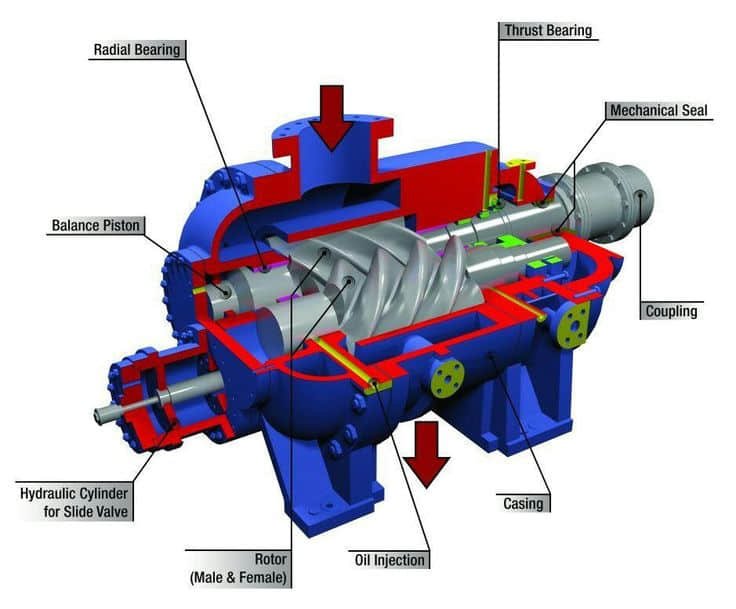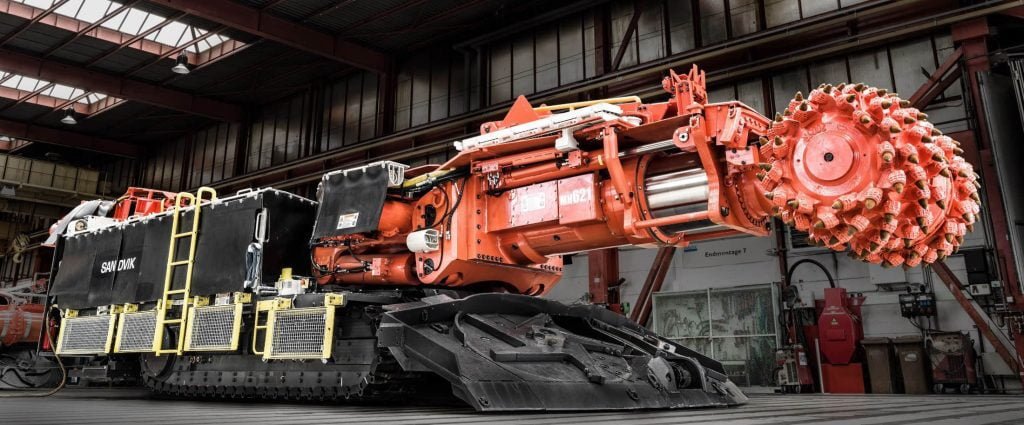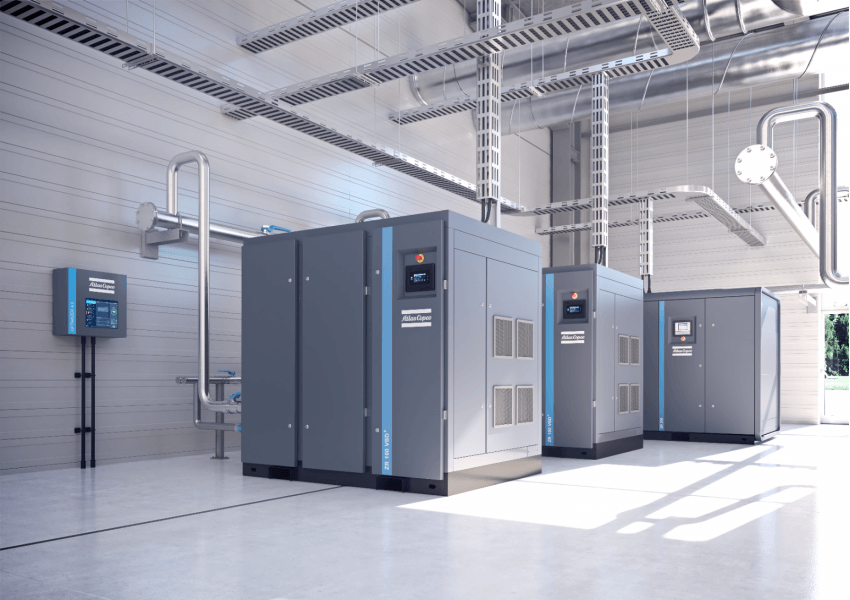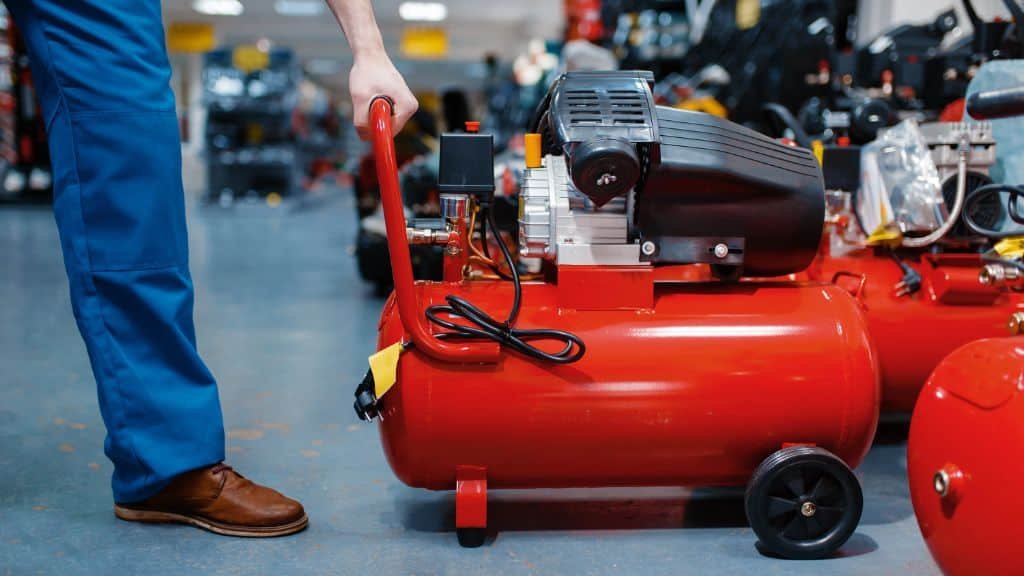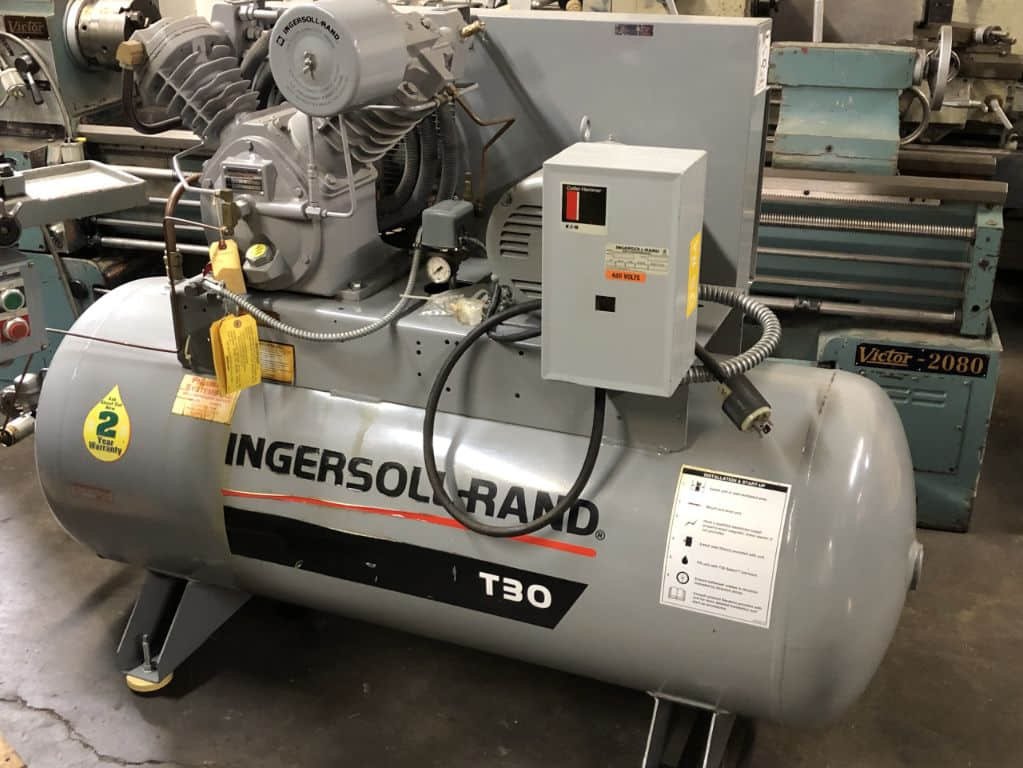Scroll compressors have gained popularity in various industries, from laboratory-based research to commercial vehicles’ air brakes, due to their efficiency, reliability, and quiet operation. Unlike traditional compressors that use a vertical piston to generate pressure, scroll compressors use a pair of interlocked scrolls.
How Does a Scroll Compressor Work?
Scroll compressors, sometimes casually referred to as spirals, generate pressurized air through the rotation of an orbital scroll moving around a fixed, stationary scroll. As air enters the unit, it follows the rotating scroll until it is compacted against the stationary scroll and sent through a small discharge port. This process typically takes several orbits to move air to the high-pressure discharge port.
Advantages of Scroll Compressors
- Reliability: Scroll compressors have fewer moving parts than piston-constructed alternatives, decreasing the likelihood of failure.
- Efficiency: According to a study completed at Purdue University, the volumetric efficiency of a scroll compressor ranges from 89 to 94%, compared to a reciprocating compressor’s 58 to 66%.
- Quiet Operation: A scroll compressor operates around 57 decibels, significantly quieter than a typical compressor that operates between 70 and 85 decibels.
Conclusion
Scroll compressors offer several advantages over traditional piston-constructed alternatives, including top-notch reliability, greater efficiency, and less noise. These benefits make them a favorable choice for various applications, especially in settings that favor quieter operations, like medical facilities or laboratories.
FAQs
Q1: How does a scroll compressor work?
A: A scroll compressor uses the rotation of an orbital scroll moving around a fixed, stationary scroll to generate pressurized air.
Q2: What is the volumetric efficiency of a scroll compressor?
A: According to a study completed at Purdue University, the volumetric efficiency of a scroll compressor ranges from 89 to 94%.
Q3: How quiet is a scroll compressor?
A: A scroll compressor operates around 57 decibels, significantly quieter than a typical compressor that operates between 70 and 85 decibels.
